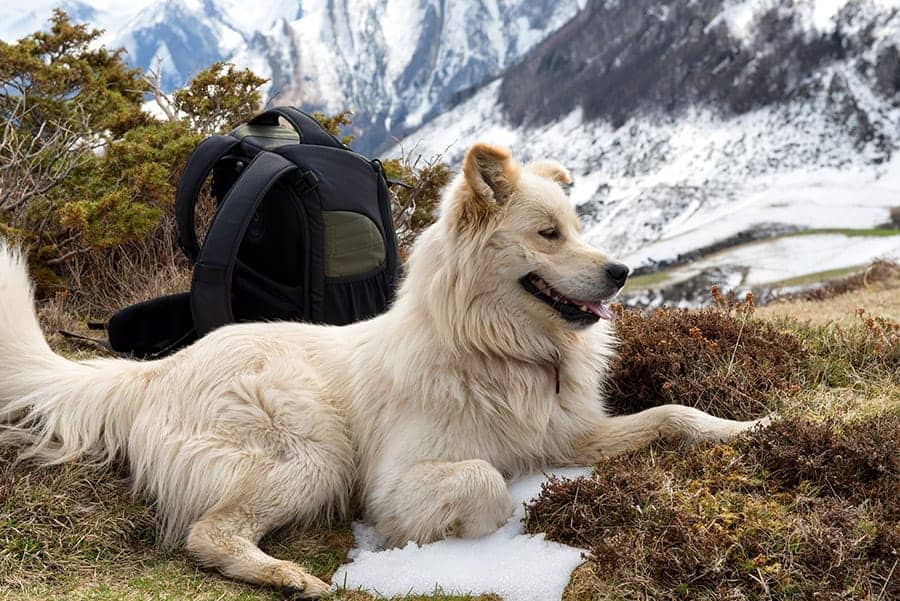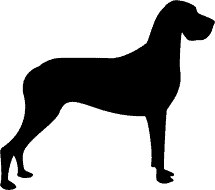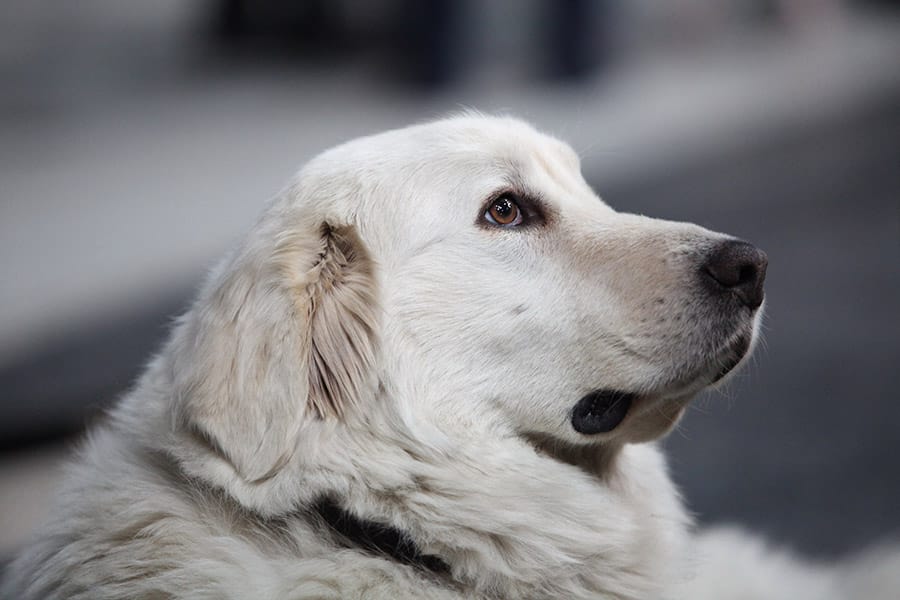Great Pyrenees
Published: Last updated: by Kyle J. Larson
A big dog with a large, strong body and lustrous, fluffy white coat, the Great Pyrenees truly is a gentle giant. They have a zen, calm demeanor but can quickly spring into action if needed.
Average size and lifespan

Weight: 85-115lbs
Lifespan: 10 - 12 Years
Behavior
- Affection
- Kid-Friendly
- Stranger-Friendly
- Dog-Friendly
- Barking Amount
Care
- Grooming Difficulty
- Shedding Amount
- Easy to Train
- Can Be Alone
- Exercise Need
Environment
- Cold Tolerance
- Heat Tolerance
- Apartment-Friendly
Great Pyrenees Information
They are patient and smart, making them an excellent choice for those with children and other pets. The breed is not particularly active but does need daily exercise to stay healthy.
History
Historians note that the Great Pyrenees appeared in Europe between 1800 and 1000 B.C., likely originating in Siberia or Central Asia. Later the Pyrenees was adopted by the French Court in the 1700s A.D.
It was bred for centuries to guard livestock and protect homes, the Great Pyrenees is a loyal and courageous breed.
It is believed that the breed originated in the region of the Pyrenees Mountains, which straddle the border between France and Spain. The breed was developed to guard flocks of sheep against wolves and other predators and was prized for its strength, courage, and loyalty.
Despite their fierce reputation as guardians and protectors, Great Pyrenees are known for their gentle and affectionate personalities. They are highly social animals and love to be around people, which makes them an excellent choice for families with children.

Training and Temperament
When it comes to training, the Great Pyrenees is a quick learner and highly intelligent. They are known for their ability to pick up new commands and skills quickly, and they are eager to please their owners. However, it is important to be consistent and firm when training a Great Pyrenees, as they can be stubborn and independent at times.
When adopting a puppy, it’s important to socialize them with other dogs and people. Great Pyrenees are known for their high energy levels and need plenty of exercise and mental stimulation to prevent them from becoming bored and destructive. Taking your Great Pyrenees for regular walks and providing them with plenty of toys and activities can help prevent behavioral problems and keep them happy and healthy.
Grooming
In terms of grooming, the Great Pyrenees’s long and thick coat requires regular grooming to keep it healthy and looking its best. They should be brushed at least once a week to prevent tangles and mats, and they should be bathed every month or so to keep their skin and coat healthy. Because of their long ears and thick coats, Great Pyrenees are also prone to ear infections and skin problems, so it is important to check and clean their ears regularly and to keep an eye out for any signs of irritation or infection.
The Great Pyrenees is a beautiful and intelligent breed well-suited to families and individuals looking for a loyal and protective companion.
All dogs have their own personality and unique training, causing them to differ slightly from these breed stats. However, please let us know if we made an error in the stats, we appreciate your help!
Breed FAQs
Can Great Pyreneess be apartment dogs?
Great Pyreneess aren't ideal for apartments, but might be able to live there successfully if there are enough opportunities to find larger spaces nearby to play.
Can Great Pyreneess be left alone?
While Great Pyreneess prefer to be around their owners, they can do fairly well when left alone if necessary.
Are Great Pyreneess good with kids?
Great Pyreneess can do fine with kids. They will require some monitoring and training to make sure they get along and react well to unpredictable behavior.
Are Great Pyreneess friendly with strangers?
Although Great Pyreneess can take a bit to warm up to a stranger, they are mostly friendly with others.
Do Great Pyreneess get along with other dogs?
Although Great Pyreneess will mostly get along with other dogs, they may have some issues. They can typically be dealt with by socializing them with other dogs.
Do Great Pyreneess bark a lot?
Most Great Pyreneess bark fairly often, which can be a nuisance. Some steps can be taken to limit this, but is part of their nature.
Do Great Pyreneess shed a lot?
Great Pyreneess shed a medium amount. They will have seasonal shedding, but aren't terrible to clean up after.
Do Great Pyreneess need a lot of grooming?
Great Pyreneess don't require very much effort for grooming. You'll just need to provide typical maintenance and baths.
Do Great Pyreneess need a lot of exercise?
Expect Great Pyreneess to have high energy levels and need a lot of exercise. You'll need to find options to release this energy or they may exibit bad behavior.
Are Great Pyreneess easy to train?
Most Great Pyreneess are stubborn and will take extra work to train. They can still learn trained behaviors, but will take more effort.
Can Great Pyreneess handle cold weather?
If you live in a cold climate, Great Pyreneess will do extremely well and may even enjoy being outside in the chilly weather.
Can Great Pyreneess handle hot weather?
Be careful with Great Pyreneess in the heat. They don't do well in hot climates for long periods.
 Getting a New Dog?
Getting a New Dog?